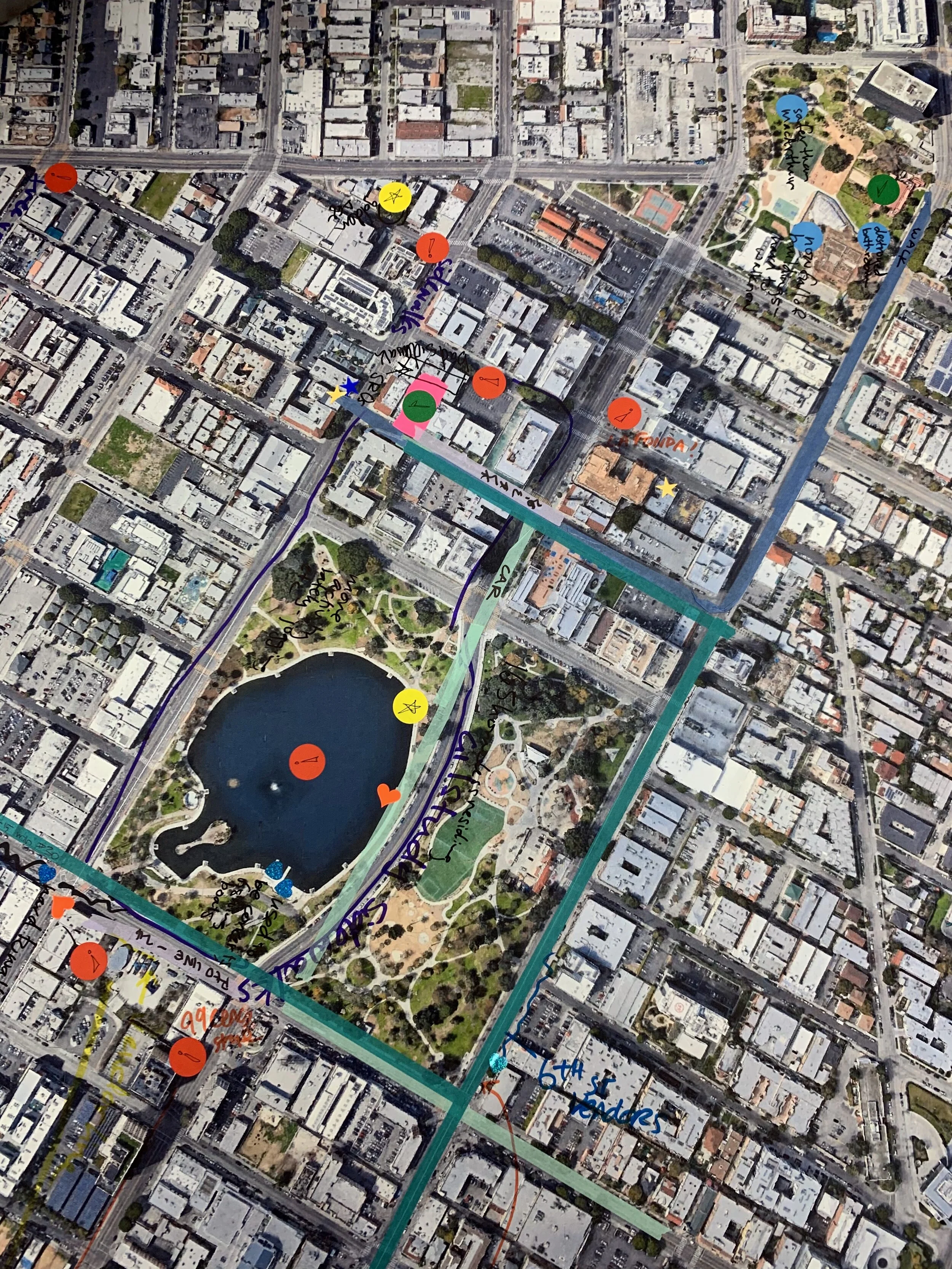The expansion of Urban Humanities into the lived fabric of the City of Los Angeles is a logical step, given the increased centrality in all our efforts of spatial justice, community engagement, and public impact. In July 2019, a team of faculty, staff, and students began a long-term engagement with three community partners representing senior citizens, families, and children. The Westlake-Pico Union neighborhood is both ideal and typical since it confronts the spatial justice challenges of cities worldwide: immigration injustices, informal economies, over-policing, neglect of the public sphere, gentrification and displacement, homelessness, underserved ethnic enclaves, fractured community identity, and safety/security concerns. Inadequate support for public services is evident in the material culture of broken sidewalks, dusty parks, and dangerous alleyways, but these same spaces mark everyday efforts by the community to redress the same problems. Informal sidewalk vendors serve as neighborhood monitors for local children, senior citizens inform a community nonprofit on how to build a new park, and an after-school arts program grows into a vibrant community center. These challenges are visible throughout the community, as are constructive everyday responses by local organizations and individuals. The neighborhood has welcomed coLAB into its midst, where all research will be undertaken with community partners, will be guided toward opening futures with greater spatial justice, and will hold lessons for other cities. coLAB, a model of the next generation of embedded, collaborative, and in situ urban humanities research, is headed by Dr. Gustavo Leclerc, Academic Administrator of the Urban Humanities Initiative.

